-
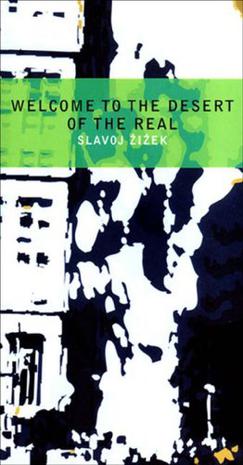
Welcome to the Desert of the Real
-
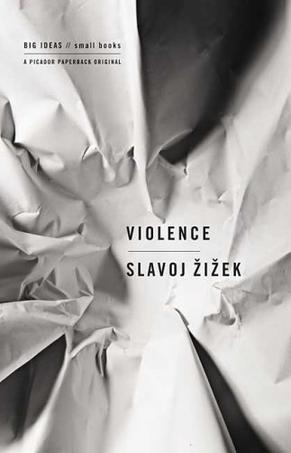
Violence
Philosopher, cultural critic, and agent provocateur Slavoj Ziand#382;ek constructs a fascinating new framework to look at the forces of violence in our world. Using history, philosophy, books, movies, Lacanian psychiatry, and jokes, Slavoj Ziand#382;ek examines the ways we perceive and misperceive violence. Drawing from his unique cultural vision, Ziand#382;ek brings new light to the Paris riots of 2005; he questions the permissiveness of violence in philanthropy; in daring terms, he reflects on the powerful image and determination of contemporary terrorists. Violence, Ziand#382;ek states, takes three forms--subjective (crime, terror), objective (racism, hate-speech, discrimination), and systemic (the catastrophic effects of economic and political systems)--and often one form of violence blunts our ability to see the others, raising complicated questions. Does the advent of capitalism and, indeed, civilization cause more violence than it prevents? Is there violence in the simple idea of "the neighbour"? And could the appropriate form of action against violence today simply be to contemplate, to think? Beginning with these and other equally contemplative questions, Ziand#382;ek discusses the inherent violence of globalization, capitalism, fundamentalism, and language, in a work that will confirm his standing as one of our most erudite and incendiary modern thinkers. -
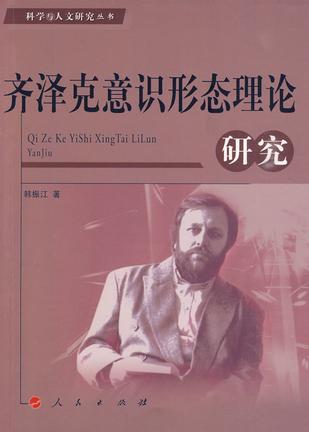
齐泽克意识形态理论研究
《齐泽克意识形态理论研究》内容简介:斯拉沃热·齐泽克是当代著名的拉康派哲学家和文艺批评家他以晚期拉康精神分析学思想为基础,对话马克思主义及当代左翼思想,重新阐发了意识形态理论齐泽克以拉康”“欲望图表”为框架,依次阐释“能指”、“认同”、“幻象”、“快感”和“驱力”五个核心范畴,全面地展现其理论体系他认为,作为符号界的意识形态是多层次的:通过认同颖制主体的话语层,遮蔽社会对抗的幻象层,欲望经济学的快感层,标举意识形态秩序解构的驱力层。 《科学与人文研究丛书》,是一套跨越科学与人文两个研究领域的综合性丛书,具有基础性、交叉性、哲理性、现实性、综合性的特点,内容主要涵盖科学与人文综合研究的诸多方面。举凡涉及科学、人文及其关系的内容,均收入这套丛书,以期实现"文理渗透、中西融汇",促进我国科学与人文的交融发展。 -
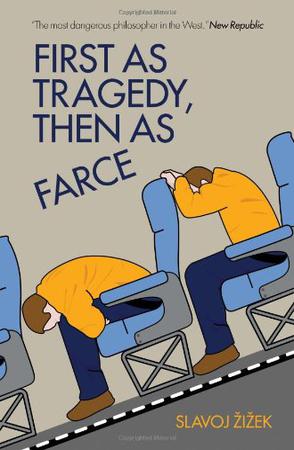
First As Tragedy, Then As Farce
In this bravura analysis of the current global crisis - following on from his bestselling "Welcome to the Desert of the Real" - Slavoj Zizek argues that the liberal idea of the end of history, declared by Francis Fukuyama during the 1990s, has had to die twice. After the collapse of the liberal-democratic political utopia, on the morning of 9/11, came the collapse of the economic utopia of global market capitalism at the end of 2008. Marx argued that history repeats itself-occurring first as tragedy, the second time as farce - and Zizek, following Herbert Marcuse, notes here that the repetition as farce can be even more terrifying than the original tragedy. The financial meltdown signals that the fantasy of globalization is over and as millions are put out of work it has become impossible to ignore the irrationality of global capitalism. Just a few months before the crash, the world's priorities seemed to be global warming, AIDS, and access to medicine, food and water- tasks labelled as urgent, but with any real action repeatedly postponed. Now, after the financial implosion, the urgent need to act seems to have become unconditional - with the result that undreamt of quantities of cash were immediately found and then poured into the financial sector without any regard for the old priorities. Do we need further proof, Zizek asks, that Capital is the Real of our lives: the Real whose demands are more absolute than even the most pressing problems of our natural and social world? -
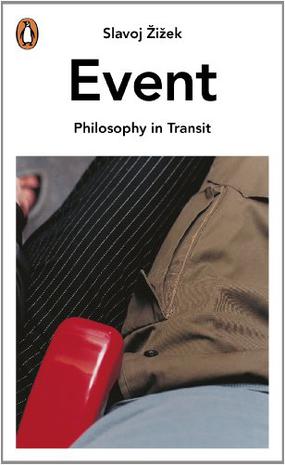
Event
-
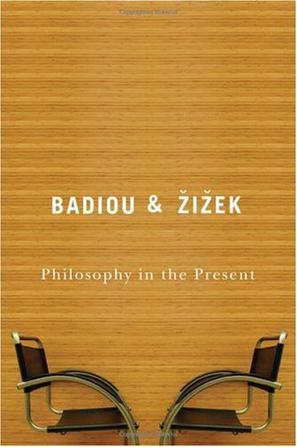
Philosophy in the Present
Two controversial thinkers discuss a timeless but nonetheless urgent question: should philosophy interfere in the world? Nothing less than philosophy is at stake because, according to Badiou, philosophy is nothing but interference and commitment and will not be restrained by academic discipline. Philosophy is strange and new, and yet speaks in the name of all - as Badiou shows with his theory of universality. Similarly, Zizek believes that the philosopher must intervene, contrary to all expectations, in the key issues of the time. He can offer no direction, but this only shows that the question has been posed incorrectly: it is valid to change the terms of the debate and settle on philosophy as abnormality and excess. At once an invitation to philosophy and an introduction to the thinking of two of the most topical and controversial philosophers writing today, this concise volume will be of great interest to students and general readers alike.